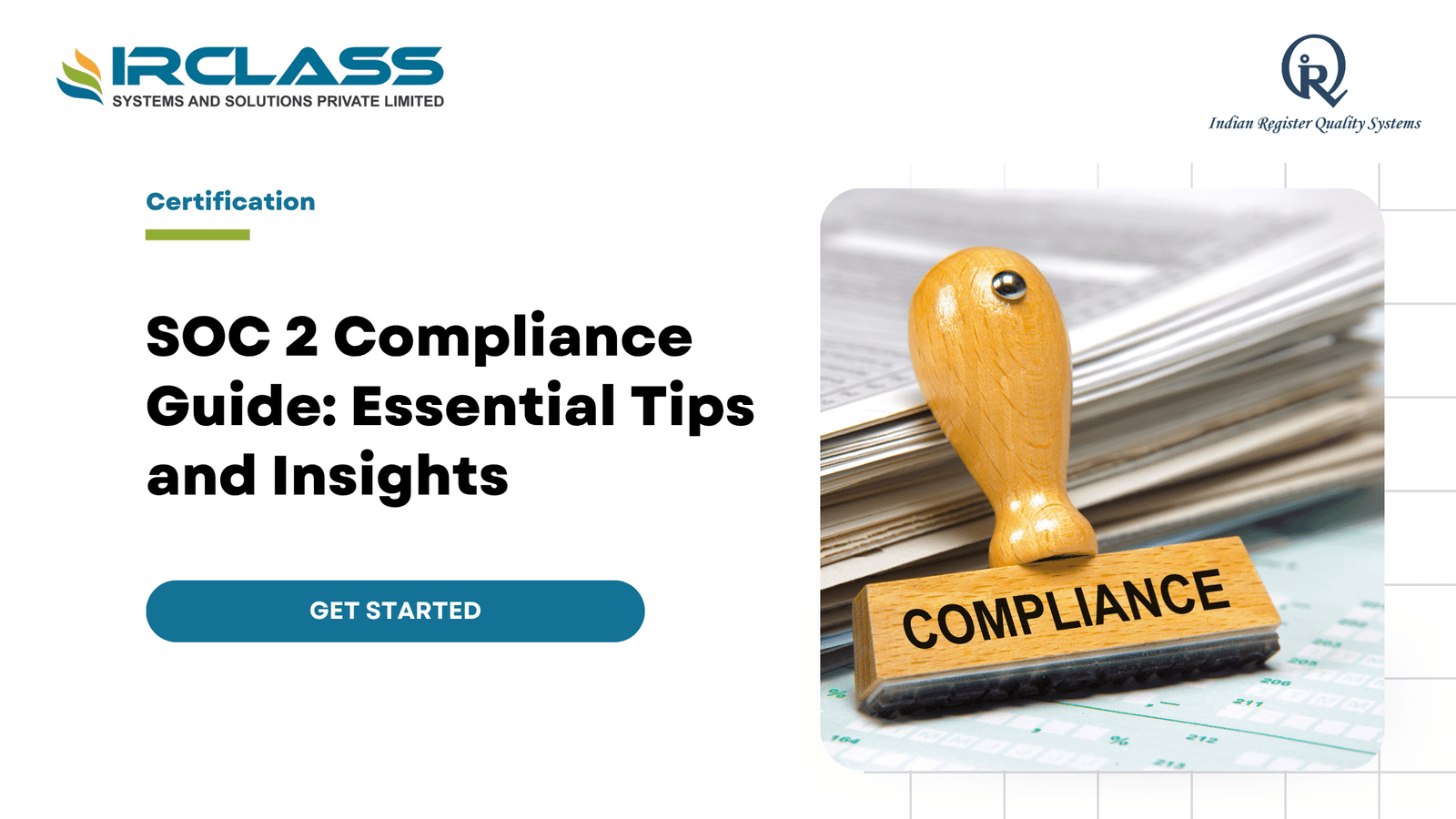Category: Food Safety Certification

FSSC 22000 Internal Auditor Training: A Comprehensive Guide
FSSC 22000 Internal Auditor Training FSSC 22000 Internal Auditor Training equips professionals to evaluate Food Safety Management Systems (FSMS) against global standards. Programs focus on audit planning, execution, and compliance with FSSC 22000 v5.1, integrating tools like food fraud mitigation and environmental monitoring. With hybrid learning models and AI-driven tools, this training ensures auditors are prepared for evolving industry demands. Did you know that companies with FSSC 22000-certified auditors reduce recall risks by 52%? In an era of tightening regulations and consumer scrutiny, mastering internal audits isn’t optional—it’s survival. Key Takeaways Introduction to FSSC 22000 and Internal Auditor Roles The Evolution of Food Safety Certification FSSC 22000, harmonizing ISO 22000 and ISO/TS 22002-1, has become the gold standard across 156 countries. The 2022 update (v5.1) mandates rigorous environmental monitoring and food fraud controls, pushing auditors to adopt tech-driven methods. Why Internal Auditors Matter Internal auditors are frontline defenders against compliance gaps. Their role spans: Structural Components of Effective Training Programs Core Curriculum Requirements IRQS’s training covers: Case Study: IRQS’s Blended Learning Model IRQS combines virtual classrooms with self-paced modules: Delivery Formats and Skill Development Comparative Training Modalities Format Duration Features Best For In-House 2 Days Customized to plant processes Large Manufacturers Virtual Classroom 16 Hours Real-time Q&A, global access Multinational Teams Self-Paced 30 Days Modular lessons, final assessment Individual Learners Skill Metrics Post-Training Strategic Implementation for Organizations Phased FSMS Integration ROI Insights A mid-sized dairy saved $18,000/year by reducing third-party audits after training internal teams. Emerging Trends and Predictions Conclusion FSSC 22000 internal auditor training is a strategic asset. IRQS’s hybrid programs, updated for v5.1 and digital tools, ensure auditors stay ahead of risks like supply chain vulnerabilities. Call to Action: Ready to elevate your FSMS? Explore IRQS’s FSSC 22000 Training today. FAQs Q1: What prerequisites are needed for this training?A: Basic knowledge of ISO 22000 and HACCP principles is recommended. Q2: How long is the certification valid?A: Certificates require renewal every 3 years, with annual refresher courses. Q3: Can training be tailored to our specific sector?A: Yes! IRQS offers custom modules for dairy, packaging, and retail. References

BRCGS Audits: A Step-by-Step Guide for a Seamless Certification Process
The industrial sector for food processing and production is extensive. The various standards related to food safety and quality determine the brand quality. BRCGS or British Retail Consortium Global Standards is the world-famous authorizing agency defining the essential norms for food safety and quality. One can ensure the best quality control and safety measures with BRCGS audits. The integral components of the audit are diverse and the professionals play a pivotal role in the process. One must connect to the top professionals in the industry to meet the highest standards. In the food industry, safety is a pivotal aspect. The essentiality of safety control is beyond a box to tick on a compliance checklist. Food safety is integral for consumers and brands involved in its production. Ensuring product safety and high-grade quality ensures optimal compliance with food safety standards by manufacturers, retailers, and suppliers. BRC standards and audits are part of the ideal industrial practices and frameworks. These help businesses achieve optimal safety and quality status. Achieving BRCGS certification denotes a commitment to excellence and boosts reputation. It is a noteworthy aspect of food safety, quality, and compliance with industry norms is essential. About the BRC standards – A global initiative BRC was established in 1992. The British Retail Consortium or BRC promotes the ideal practices for the food industry amidst evolving landscapes. It defines the regulatory frameworks of UK and EU food safety laws. The BRC Global Standards or BRCGS is a prime global benchmark, promoting food safety and quality programs worldwide. BRC Global Standards is a prominent safety and quality certification program for food products. The standards were developed by the British Retail Consortium, the trade association of the UK retail industry. BRCGS covers an extensive range of food safety and quality concerns. The safety issues include – food safety management systems, product safety, packaging, storage, and distribution techniques. It also delivers a framework for product safety, quality, and operational measures for the food ingredient manufacturing, processing, and packing sector. The BRC Global Standards food safety certification program helps certify suppliers across different countries. Audit and understanding – Both are necessary The BRCGS audit requires an in-depth understanding of the standards defined by the consortium. BRCGS defines various standards tailored to meet the requirements of specific sectors like – food safety, packaging, storage, and distribution. Businesses can review the relevant standards based on the industrial type and product offerings to decide the best. Preparation is necessary to ensure a successful BRCGS audit. Hiring a dedicated team to oversee the certification process is the best approach. They can conduct a gap analysis drill to identify areas the shortcomings. The proactive approach helps implement the corrective actions before the audit commences. 9 Integral aspects – Critical to note BRCGS audit is relevant for organizations meeting the following criteria – The updated standards contain nine core sections, including – Significance of audit – The BRC can improve the safety and quality of food products with the best-in-class and high standards. BRC certification is a necessity for many retailers and suppliers. The certification has helped raise the standard for food safety across the industry. One can ensure the best solution by adhering to the defined benchmarks. The BRC-certified companies can manage and mitigate the risk of food safety incidents, ensuring optimal consumer confidence in their products. Components of BRCGS audit A BRC audit evaluates the compliance and safety status and helps you match them with the BRC Global Standards. It is a comprehensive assessment of the food safety management system, food management processes, and operational procedures for the organization. The audit is conducted by an independent BRC-accredited certification body, ensuring optimal safety and reputational advantage. Make a prudent call. Ensure the best audit services with professional auditors. They have the necessary resources to simplify the process and deliver accurate reports on the food safety index. IRQS is first certification body to receive NABCB Accreditation for BRCGS standard in India. Consider the professional services to ensure optimal accuracy.

Ensuring Food Safety: FSSC 22000 Version 6 Compliance and Certification in India
The FSSC 22000 certification program is a Food Safety System that supplies a comprehensive framework for the production chain of a food product. The certification framework is an effective solution to manage and promote the food safety responsibilities in an organization. The food safety program is a globally accepted framework, and it is acknowledged by the Global Food Safety Initiative (GFSI). FSSC is based on the existing ISO Standards, and thus, the utility of the framework is unquestionable. FSSC 22000 has gained popularity in a short span. In fact, more and more retailers and manufacturers are pushing their limits to adhere to the norms. The certification has an integral role in preventing the possibility of recalling the products. There are 7600 facilities certified across the world, and FSSC 22000 is among the fastest-growing certification schemes. The FSSC 22000 system employs a management system and defines the ideal approach to food safety. It is an effective choice and uses the ISO 22000 framework for optimal management system requirements and ISO Technical Standard maintenance. The food safety management system combines multiple management systems, such as ISO 9001 and ISO 14001, delivering a comprehensive solution. FSSC 22000 Certification – Understanding it rightly. A standardized system ensuring the nobility and safety of the various links in a food chain is vital to maintaining quality. The FSSC standard has become critical to ensure optimal consumer protection. There are diverse benefits of the certification, making it a prime choice among manufacturers and consumers. The International Organization for Standardization, or ISO, has developed a Food Safety Management System. It is based on the Quality Management System – ISO 9001, a globally accepted standard. The Food Safety Management System is applicable to any company or enterprise in the food industry. It is suitable for farmers, manufacturers, and transporters. Importance of FSSC 22000 Certification FSSC 22000 is an all-inclusive Food Safety Management System. It combines with different ISO-based management systems like – ISO 9001, ISO 14000, etc. Read on and explore the significance of the updated certification program. 1. Managing Risk If you adhere to the norms of the FSSC System, it will give your company a competent management strategy for food safety hazards. It helps an organization by building a comprehensive environment with optimal capacity for producing a safe product. The management system is convenient and fuss-free to manage, monitor, and validate. Also, it streamlines system improvement. 2. Maintain current customers Recent research states that approximately twenty-five percent of certified companies are asking their suppliers to acquire the certification. It is high time you consider the system. Acquiring the certification is essential for the organization. It helps you operate optimally and get better clients alongside the existing customers. 3. Increase your market reach The top retailers and multinational manufacturers look for the certification of their suppliers. If you have an FSSC 22000 Certification, it expands your market reach to the next level. With the certification, you become ready to expand the market reach. 4. Prepare for upcoming regulatory changes Different countries across the world are modifying their food safety system. It is vital to abide by the new food safety regulations and update the existing system. FSSC facilitates the operations of the organization to meet the regulatory requirements. What are the reasons for the revision? According to the revised version of the FSSC standard, one must take care of the following aspects – Compliance deadline FSSC 22000 Version 6 was published on April 1, 2023. It had a one-year deadline for compliance. By March 31, 2024, all certification audits must follow the guidelines of version 5.1. The transition period is from April 1, 2024, to March 31, 2025. During this time, all organizations already certified must be audited in the new version 6. It is better to start early and implement the vital changes. It necessitates critical analysis and risk assessment to determine an effective structure. Updated norms in FSSC version 6 The different updated norms in FSSC version 6 include – Food Safety and Quality Culture, Equipment Management, Communication Requirements, Quality Control, and Food Loss and Waste. The new topics included in the existing set of requirements are – Supplier Management, Product Labelling, Logo Use, Management of Allergens, Food Defense, Food Fraud, Environmental Monitoring, Transportation and Delivery, Product Design and Development, Requirements for multi-site organization, and Hazard Control and steps to prevent cross-contamination. The unchanged aspects of the FSSC version are the verification of PPRs and Health Status. Benefits you must know Several consumers have become concerned about food safety, and awareness has increased to the next level. Unfortunately, the incidents of foodborne health hazards and product recalls in the supply chains have worsened the situation. Manufacturers need to focus and put extra effort into addressing the operational vulnerabilities in the processes. Explore the prime benefits of the food certification to make the best decision – Closing note – Make the best choice Meet the requirements of the latest version of FSSC. Get a golden chance to develop and implement food fraud prevention measures for enhanced operations. Review and recognize the vulnerabilities in your supply chain. Identify the aspects that could lead to food fraud incidents and implement the ideal controls to mitigate the risks. Make it a point to review and update your food fraud prevention strategy and stay ahead of the emerging threats.

Understanding FSSC 22000 Version 6: What’s New and What’s Changed?
FSSC 22000 is a globally recognized certification scheme. FSSC 2200 ensures the safety and quality of food-based products. The newest version of FSSC 22000 comprises the sixth version. It was published in April 2023. One can obtain a 12-month transition period between 1st April 2023 and 31st March 2024. The transition is vital to abide by. Why? Because after 31st March 2024, no audits could be conducted by following the 5.1. version of FSSC 22000 certification. The latest version of the certification exhibits significant changes and all these impact food production companies. Review the prime transition areas and ensure the best solution. Changes in the food chain category FSSC 22000 version 6 has introduced effective changes to food chain categories. The food chain subcategories were based on the ISO22003-1 accreditation program. The categories met the Global Food Safety Initiative (GFSI) requirements. But things have evolved. FSSC version 6 has introduced two categories – The pet food production categories have also been revised and eliminated. Pet food is part of the C and D categories. The latest addition of e-commerce could be seen in the category FI. Introducing detailed clauses – Know them rightly. The additional norms and requirements of FSSC version 6 include the following – Audit times – The change in accreditation The various changes in the accreditation document ISO 22003-1 make a remarkable impact. One can spot additional requirements related to the audit time for FSSC 22000. In fact, the audit time will increase for many organizations. In contrast, enterprises that undergo integrated audits with management systems or food safety systems can experience a reduction in audit time. Follow up on non-major conformities. FSSC 2200 version 6 defines the prime non-conformities, and these need to be enclosed by the certification body (CB) within a span of 28 calendar days. The days get counted from the last day of the audit. A Corrective Action Plan or CAP can also deliver temporary measures and ensure optimal monitoring solutions to mitigate the risks. The temporary changes are critical until permanent corrective action can be implemented. Additional audit documentation and certificates FSSC 22000 version 6 also necessitates the active role of a representative of the company and an experienced auditor to meet the needs. They help complete the attendance register. It is a critical document and contains information related to the start and end time of the audit with the break times. In addition, an integrity declaration is vital to manage by a senior representative of the company throughout the audit. Communication requirements – A new section It is a new section introduced in the 6th version of FSSC. The certification body must be informed within three days of an event that may impact food safety, legality, and the certification integrity. It can include force majeure, natural and human-made disasters like – war, crime, flood, earthquake, strike, terrorism, crime, flood, earthquake, malicious computer hacking, etc. Also, it includes critical situations where the certification integrity is at stake. FSSC is essential to prevent disrepute, recalls, withdrawals, disasters, and food safety outbreaks. The FSSC certification body needs to be informed within a span of three days. It is applicable to regulatory authorities and food safety issues. In many cases, there may be additional monitoring requirements, enforcing production shutdown. The FSSC norms are apt for food safety-related legal proceedings, trials, malpractices, and fraudulent activities. Equipment management – A new chapter Equipment specification and management are integral aspects. Companies need to follow FSSC compliance and regulatory norms for addressing hygienic design. The compliance norms help you navigate the hassles of legal and customer requirements. Ensure the best utility and functionality for equipment and ease the management steps conveniently. The supplier must offer accurate details and specifications before proceeding with the equipment installation. It helps avoid the risks, ensuring optimal quality. With the evolved management techniques, enjoy the benefits of adequate equipment control measures for production. Enhanced and updated norms for quality control Quality control exhibits a systematic procedure. It includes various aspects like the establishment, implementation, and maintenance of quality norms. The QMS also focuses on the finished product specifications and product release steps. Additionally, one can obtain an analytical overview of the quality control parameters that shall be carried out and used as input for the management review. The quality control procedure is included in internal audits, enhancing the overall attributes of the products. Quantity control techniques are dynamic and can vary based on legal and customer requirements. These are also included in the new chapter. Besides these, the establishing and implementing line start-up and change-over procedures have been added to the new chapter. It focuses on the dynamic controlling measures related to product labelling and packaging. Ensure better food safety and quality. Before the new changes in the certification framework, the focus was exclusively on food safety culture. It had to be implemented aptly and was part of FSSC 22000. The new version delivers a comprehensive solution by adding a new chapter with additional requirements. It covers everything essential for quality culture. It exhibits the commitment of an organization and helps cultivate optimal food safety and quality. The diverse aspects to consider in food safety and quality culture include – Ensure a well-documented food safety and quality culture plan with better-defined targets and deadlines for continuous improvement and optimal management. Summing up The main changes in the FSSC 22000 version 6 include – Ensure an efficient transition by realizing the new changes and critical aspects of the latest version of FSSC 22000. Image by Freepik

The Importance of BRCGS Certification in the Food Industry
Food safety is a vital aspect and matters the most in the food supply chain. It is essential to review the specific packaging material standards because they play a prime role in ensuring food safety and hygiene. It helps an organization to get recognized as a trusted supplier. The BRCGS Global Standard for Packaging Materials is ideal for food-based brands and helps demonstrate the best quality products. Ensure optimal quality assurance, legal compliance, and authenticity with BRCGS certification. About BRCGS – BRCGS was founded in 1996 by Brand Reputation through Compliance Global Standards. The certification is part of a renowned body operating with a set of safety standards and certification schemes across the globe. The BRCGS Food Safety and BRCGS Packaging and Packaging Materials are among the most prominent schemes. BRCGS certification exhibits the best manufacturing practices to be benchmarked. It helps deliver optimal assurance of high quality and safety across the dynamic food supply chains. Both industry specialists and consumers can vouch for the reliability and integrity of the globally acknowledged certificates on food and its ingredients. Prime areas of concern The certification framework has become a world choice and more than 22,000 sites in the world have adopted the BRCGS Global Food Safety Standard. It is recognized by the Global Food Safety Initiative (GFSI). The food certification incorporates international and local regulations and has been developed by food industry experts, including – retailers, manufacturers, and food services organizations. The certification exhibits a robust framework based on the various aspects related to product safety, integrity, legality, and quality. With well-defined operational controls for the manufacturing, ensure the best control over food packaging and food ingredients. BRCGS food safety focuses on – The framework is efficient and covers more than one area of food safety services. The prime aspects are – Food and packaging industry – Know the significance. The BRCGS Packaging Materials Global Standard is ideal for a manufacturer producing packaging materials for different products. The product range can vary from food to consumer goods. It is suitable and specifically designed to provide a world-class standard with maximized efficiency and effectiveness. It is an excellent tool for the packaging industry, and it ensures optimal consumer safety and compliance avoiding legal hassles. This standard was developed by the British Consortium or BRC, in partnership with The Packaging Society. There are two categories of operations, including – BRCGS packaging standard reviewing the following – Capture the vegan market with BGRS. The taste is evolving, and more people are turning vegan and choosing a vegetarian diet. In the fast-growing global plant-based markets, BRCGS brings the ideal solution. It provides a Plant-Based Certification based on the skills, expertise, and scientific knowledge of the food safety programs. The BRCGS plant-based certification program helps the manufacturing units to develop plant-based foods. It is an effective choice for the comprehensive management system approach. The BGRS program includes operational norms that guarantee optimal safety for plant-based products. Ensure the elimination of animal-origin material in vegan food products with maximized quality controls. It is convenient to add to the GFSI benchmarked Food Standard or Global Markets Program on the intermediate level, demonstrating the best commitment to serve the plant-based sector. BRCGS is efficient and keeps the clients informed with the well-documented and designed Plant-Based Trademark. Better business opportunities It is paramount to assess the service potential of food suppliers. One can find an efficient solution to assess the professional capabilities of the suppliers with the certification framework. There are many brand owners, retailers, food service companies, and manufacturers willing to acquire the BRCGS certification. But it needs a systematic solution. Whether it is a local brand or operating in an emerging global market, the BRCGS-certified packaging producer helps significantly. It boosts the product quality to earn customer trust in the long run. Working with a BRCGS-certified packaging producer pushes the standards of product safety. Additionally, it helps reduce waste, complaints, and returns. The practical benefits of the BRGS certification make it the ideal solution for manufacturers in the industry. The BRCGS certification enhances the prospects for a brand and boosts the international recognition for their product quality. It also amplifies the production to the next level. The standard safeguards the brands and consumers, assuring optimal operational guidelines and product quality and safety norms. If you are a food producer, supplier, or distributor and want to associate with large retailers, consider getting certified. The packaging must be BRCGS-certified to meet global standards and expectations. Closing note – Enjoy the diverse benefits. Make the best choice with the globally acknowledged certification and connect a single-standard third-party certification for quality standards and safety evaluation. It will help you reduce the cost, effort, and time. Enhance business performance with systematic solutions and boost the continuous improvement process. It results in increased efficiency of the operational process. Maximize the competitive advantage by following the globally accepted safety norms based on quality, hygiene, and food safety. Explore an opportunity to amplify the business and seek new markets with a robust BRCGS certification. Develop a trustworthy brand and gain customer confidence by establishing a self-improving quality, hygiene, and product safety system. Make the best choice by acquiring the certification systematically.

Ensuring Food Safety Compliance: The Role Of Certified Food Safety Courses
Modern hygiene policies have evolved comprehensively with the pandemic impact. One can find a drastic impact of hygiene and safety norms on industries related to health, food, and beverages. There are various integral factors related to food health and safety that impact the life and health of the consumers. The industrialists must conform to the requirements and maintain the best food management system. The food Safety standards have enhanced largely over the last few years, and it is critical to abide by the regulations. It is the need of the hour to address the prime requirements like – safety, quality, and integrity of the food products. Food safety certification is a third-party validation program that concerns the production and operations of the food and beverage industry. It offers a well-defined framework for quality management for food manufacturing processes. These food safety programs are distinctive and have definitive features that assure safety conformity. The safety programs cover various aspects, including – supplier evaluation, laboratory testing, industrial inspection, etc. From the business perspective – Food safety is integral for food businesses for more than one reason. One needs to have an overview of the critical requirements that make the food certification programs indispensable for all food business owners – About the food safety program The third-party verification programs for food safety involve the evaluation and quality assessment of food products, manufacturing processes, and operational systems. Acquiring the certification exhibits brand value and promotes business. The increased awareness of food safety training benefits the operations in the industrial unit. Everyone can stay aware of the integral roles in safety assurance, and thus, compliance becomes a hassle-free choice. An organization with food safety certification can vouch for the product quality and abide by the regulations defined by the food safety standard. Boost the operational confidence and ease the food management system with the best food safety policy. Understand the essentiality The need for a food safety certification program is paramount for the industrial leaders in the food business market. A food business with food safety certification can assure the best production outcome for the consumers and rule the marketplace with optimal confidence. The business can meet the requirements of the national or globally recognized safety practices for food and beverage production companies. It helps you maintain the best approach for food supply and management in the long run. An overview of the popular food safety programs – You must obtain an overall knowledge of the best-in-class food safety programs in the industry. It will help you succeed and make the best choice. ISO 22000 FSMS ISO 22000 FSMS certification is the first certification program that comes to mind when you hear about food safety. It is applicable to all food suppliers, and it promotes quality assurance within the food supply chain. The food safety program has become essential to ensure maximized safety and quality of the foods. With the ISO 22000 certification framework, enjoy these benefits – FSSC 22000 After ISO 22000, the next food safety program has to be FSSC 22000. It can be considered an extended version of ISO 22000. The goal of the FSSC 22000 is to monitor and mitigate the various food safety risks. FSSC is the abbreviation for Food Safety Management Certification Scheme. The certification scheme delivers structured plans and systems for food management, enhancing safety risks with efficient production. Adhere to the safety standards of FSSC 22000 and enjoy the unique benefits – HACCP HACCP is the abbreviation for Hazard Analysis Critical Control Points. It is similar to ISO certification programs and other food safety management standards. HACCP demonstrates the prime food production practices for enhanced safety and hygiene. The norms of the HACCP framework are exceptional for preventing microbiological, chemical, and physical contamination in the production unit. The benefits of HACCP are – Summing up Ensure the best practices for food safety and witness the business growth to the next level. It is an indispensable choice, and one must comply with the critical standards related to food hygiene and safety.
From Street Food To Fine Dining: How ISO-Certified Food Safety Courses Elevate Indian Cuisine
Explore How ISO-Certified Food Safety Training Uplifts Hygiene Practices, Enhancing India’s Culinary Landscape. Food safety is an essential social and health priority for India, or any other country, for that matter. The HACCP and ISO Standards are integral aspects and conditional for enhancing the overall quality of food safety and hygiene in India. The standards also help increase the business share of the country in the global food trade. The primary concern of the standardization scheme is to boost the operations of the food processing industry with the best hygiene and safety practices. It is vital to incorporate the best practices for food safety and quality assurance mechanisms. One can seek guidance from the best guidelines in the framework of ISO 9000, ISO 22000, HACCP, GMP, GHP, etc. All these standards facilitate the adherence to safety norms for food processors. One can meet the stringent quality and hygiene standards and protect the health of consumers. It also enhances product acceptance by buyers in the domestic and overseas food industry. The ever-increasing significance The various controversies related to the non-adherence to food safety standards need your attention. One needs to focus on the ideal hygiene practices for dairy and food products. The companies must meet the guidelines to combat safety issues in India. Apart from health, food safety is an integral quality for economic growth. These are modern solutions for the food processing industry, and offer a tremendous opportunity to expand the business. The food safety norms also improve employment potential, boost exports of agro-products, and offer optimal returns to farmers for their bulk production. The food safety standards need an efficient execution plan in order to be effectively enforced in the country. It is the responsibility of the business operators to prevent possible harm to customers. Neglecting the safety norms may lead to food-borne disease outbreaks as well! Thus, the significance of the ISO norms is critical. The WHO practices – Know about them rightly. One must find the best ways to prevent safety hazards and incidents. According to WHO or World Health Organization, one must acknowledge the five critical aspects related to food and hygiene safety – Safety across all stages of food production and distribution – All the establishments dealing with the managing, processing, manufacturing, packaging, and distributing of food via a business operator must adhere to the updated food safety and hygiene norms. The general hygienic and sanitary practices have become more integral since the pandemic. All food business operators must adhere to the food safety activities to avoid the hazards and hassles. About ISO 22000 – ISO 22000 defines the requirements for a food safety management system. All businesses must get certified to the safety norms. It defines everything an organization must implement in its action plan and demonstrates its ability to monitor food safety hazards. All businesses and organizations in the food industry regardless of their size or position in the food chain can implement the standards. ISO 22000 is an integral resource for businesses in the food industry. By meeting the ideal guidelines in ISO 22000, businesses can develop and adhere to a robust food safety management system or FSMS. The updated standard offers multiple benefits to businesses. Benefits you must know Food safety systems defined in the ISO 22000 framework provide a business with the best policies and procedures to review and analyze food safety risks and hygiene hazards. Read on and obtain an overview of the diverse benefits of ISO 22000 to help organizations – Benefits of ISO – An ISO-certified organization assures the optimal quality of the business and boosts the trust, growth, and scalability of the business. Concluding note In conclusion, the essential ISO standards are paramount for businesses in the food industry as these are connected with consumer health. Many things may go wrong within the food industry. Thus, food safety standards are critical from all angles. Image by rawpixel.com

How Does FSSC 22000 V6 Compare To Other Food Safety Standards?
Food Safety System Certification 22000 is a notable scheme for those companies trying to maintain the maximum level of food safety management. It is critical to build and gain consumer trust and confidence. The version 6 of the globally-recognized FSSC scheme has been published by the authority. This current version exhibits multiple changes. It is designed to improve and enhance the scheme’s effectiveness. These changes are about to make an extensive impact on organizations in the food chain. Thus, one must stay up to about the FSSC 22000 V6 to understand how it would affect the business. Upgrade necessity – Know the need. Distinctive features of FSSC 22000 – What makes it unique? FSSC 22000 and ISO 22000 – Know the differences FSSC 22000 delivers a competent certification scheme with the vital features of ISO 22000 and an extensive list of standards for enterprises. The ISO 22000 certification framework contains lesser rigid requirements for the authority and enterprise, covering infrastructure and documentation maintenance. FSSC 22000 exhibits stricter requirements for infrastructure, covering the technical specifications of pre-industrial programs. The implementation of these requirements needs to be documented as part of the regulations of the framework. The requirements for the authority are vital for compliance, making the requirements of FSSC 22000 more rigid. It is necessary to develop and incorporate the critical procedures for ISO 22000 and FSSC 22000. There needs to be a thorough procedure for ensuring optimal management of documents, depending on the norms of production. The procedure of certification is similar for both schemes. However, the necessities of the FSSC 22000 scheme are more comprehensive and rigid, making it a labor-intensive process. Industries that can incorporate FSSC 22000 FSSC 22000 is suitable for various industries related to food and manufacturing. It includes – Prime benefits of FSSC 22000 – Positive impacts of the certification One can attain a systematic and competent strategy to identify and moderate food safety risks and hazards. The ISO-based certification model is apt for the food supply chain. FSSC 22000 is based on the ISO model. Thus, one can implement the framework with similar requirements. Read on and explore the benefits of FSSC 22000 and recognize the positive impacts of the certification – Industrial impacts with the new version – Experts must note Closing note – Audit impacts with the new version Due to changes in the accreditation document, the audit time for FSSC 22000 audits has been revised. The audit time has increased in many organizations. Many organizations need an integrated audit with enhanced management systems for food safety without reducing efficiency. Choose IRQS for an end-to-end solution related to FSSC audits and ease the professional requirements. Ensure an efficient audit session, meeting the revised norms of the FSSC 22000 audit. Image by Freepik

How To Choose The Right Food Safety Certification For Your Business?
Food Safety Certification authenticates the food business by implementing healthy practices ensuring optimal safety and quality. The environmental and distinct management systems are vital alongside the legal and standard compliance. If a business is linked with the food industry either directly or indirectly, one needs to get the food safety certification. From legal compliance to market essentials, there are ample reasons to make it an indispensable choice for food businesses. But how do you choose the right certification? Read on and know better. Success with food safety certifications – What makes it the apt choice? Before reviewing the various ways to pick the right safety certification for food safety, recognize the benefits and features – The ultimate reason to pick the best The purpose of industrial accreditation is uniform across the globe. Once a company gets certified, it is accepted everywhere! However, there are individual organizations certified with two or more food safety standards. A comprehensive framework introduces an all-inclusive administration and reduced redundancies in the organization. In the long run, it acts as a source for generating income via additional certification. There is more than one certification standard and scheme across the globe. Hence, the process of selecting the appropriate scheme is a critical task. Here are a few essential aspects that play a vital role in decision-making while browsing the certifications. What about the customer’s expectations? The customer demands incorporating a specific scheme may be a critical aspect of an organization. Most food organizations with numerous customers review the most-popular scheme. Understand that there is no scope for negotiation with the customer, and you can exhibit your rationale while making a firm choice. For instance, if a customer insists on BRC certification, you must negotiate a GFSI-approved certification scheme. Why? Because GFSI benchmarked standards include multiple schemes. It includes – BRCGS or BRC, FSSC 22000, IFS, SQF, and GLOBALGAP. Thus, you must recognize the customer expectation and pick the apt certification scheme. Review the size of the organization. GFSI benchmarked standards are practical. These are convenient and achievable by organizations of a specific size. Thus, the size of the company plays a significant part in making the apt decision. Small and micro food businesses must review the elementary options like the FSSC development program for global markets. The small and micro food businesses can also go for other independent schemes SALSA. However, the geographical location plays a distinctive role. The SALSA scheme is independent and it is an apt choice in the UK. These are appropriate starting points if the business is small. What about resources? Most organizations with the norms approved by GFSI benchmarks need ample resources. The standards approval necessitates full-time technical personnel. Or there must be a consultancy service team. Professional resources are vital and you cannot avoid it. The technical resources are essential for implementing and maintaining the norms and regulations of the popular food safety certifications. Features and Benefits of food safety certification Understanding the prime benefits of the certification will help you uncover numerous reasons to get certified. It is essential for – Improved Health and Safety – The prime factor The proper practices reduce the risk of contamination. It safeguards the product and food from pathogens like E. coli or Salmonella. One can identify the health risks and unsafe conditions, like – temperature abuse or poor hygiene. It is the prime intention of the certification. Help the workers around food-handling surfaces by following safe practices. Improved Customer Service – The goal Apart from recognizing the perks and purpose of the food safety program, clarify the goal. Why do you need it? With these certifications, one can implement new skills and ideal practices. It helps the customers receive superior service. Thus, you gain their trust and can expand the business in the long run. Summing the pros of getting the apt certification With the increasing cases of product recalls and unwanted food poisoning incidents across the world, consumers are losing faith in food products. Currently, information is easily available via social media. The consumers are aware and prudent, making the apt choice of food purchases. Manufacturers with certification can gain the trust for food safety among consumers, expanding overseas opportunities for the business. Apart from the vital features of the certification program, the factors that make a significant impact include – Final note – Get certified by professionals. Find trusted and qualified resources for the certifications. With an accredited provider of food quality and safety testing, the process of acquiring the certification and training for HACCP, ISO 22000, and FSSC 22000, becomes convenient. Connect to IRQS for a hassle-free audit service. It is efficient and effective for businesses looking for the ultimate solution.
Search
Useful Links
Recent Posts

What Is Carbon Footprint Verification & Why It’s Critical for Your ESG Goals

Why ESG Reporting Is the Future of Business Strategy



